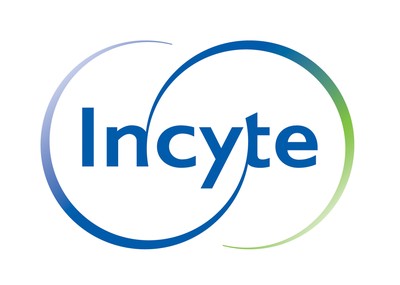Lilly Receives FDA Breakthrough Therapy Designation for Baricitinib for the Treatment of Alopecia Areata
 Press Release[/caption]
Press Release[/caption]
Recognition reinforces baricitinib's potential to be the first FDA-approved medicine for individuals living with alopecia areata
INDIANAPOLIS,?March 16, 2020?/PRNewswire/ --?Eli Lilly and Company(NYSE: LLY) and?Incyte Corporation?(NASDAQ: INCY) announced today that the?U.S. Food and Drug Administration?(FDA) has granted Breakthrough Therapy designation to baricitinib for the treatment of alopecia areata (AA), an autoimmune disorder that can cause unpredictable hair loss on the scalp, face and other areas of the body. The Breakthrough Therapy designation aims to expedite the development and review of drugs that are intended to treat a serious condition when preliminary clinical evidence indicates that the drug may demonstrate substantial improvement over already available therapies on a clinically significant endpoint(s).
"Patients with AA currently do not have any FDA-approved treatment options available to them," said Lotus Mallbris, M.D., Ph.D., vice president of immunology development at?Lilly. "AA not only causes hair loss but also may be a psychosocial burden for people living with this disease. At?Lilly, we aspire to create new medicines that can give hope to patients. We look forward to working with the FDA to further explore baricitinib's potential to become the first approved treatment option for these individuals."
The FDA Breakthrough Therapy designation is based on the positive Phase 2 results of?Lilly's adaptive Phase 2/3 study BRAVE-AA1, which evaluated treatment with baricitinib versus placebo in adult patients with AA. In the Phase 2 portion of the BRAVE-AA1 study up to Week 36, there were no new safety signals with no serious adverse events reported. The reported treatment-emergent adverse events (TEAEs) were mild or moderate and the most common included upper respiratory tract infections, nasopharyngitis and acne.
Based on the interim results of the Phase 2 part of the study, the Phase 3 portion of BRAVE-AA1 and an additional Phase 3 double-blind study (BRAVE-AA2), are currently assessing the efficacy and safety of the 2-mg and 4-mg doses of baricitinib relative to placebo.
"There are millions of people around the world affected by and living with AA," said?Dory Kranz, president and CEO of the?National Alopecia Areata Foundation. "We're encouraged by baricitinib's potential to be one of the first FDA-approved medicines to treat AA."
Baricitinib is currently approved for the treatment of adults with moderately to severely active rheumatoid arthritis (RA). More than 100,000 patients have experience using baricitinib, which is approved in over 65 countries including the?U.S., member states of the EU and?Japan. It is marketed as OLUMIANT?.
Indication and Usage for OLUMIANT (baricitinib) tablets (in?the United States) for RA patients
OLUMIANT??(baricitinib) 2-mg is indicated for the treatment of adult patients with moderately to severely active rheumatoid arthritis who have had an inadequate response to one or more tumor necrosis factor (TNF) antagonist therapies.?Limitation of Use: Use of OLUMIANT in combination with other JAK inhibitors, biologic disease-modifying antirheumatic drugs (DMARDs), or with potent immunosuppressants such as azathioprine and cyclosporine is not recommended.
IMPORTANT SAFETY INFORMATION FOR OLUMIANT (baricitinib) TABLETS?
WARNING: SERIOUS INFECTIONS, MALIGNANCY, AND THROMBOSIS
SERIOUS INFECTIONS: Patients treated with Olumiant are at risk for developing serious infections that may lead to hospitalization or death. Most patients who developed these infections were taking concomitant immunosuppressants such as methotrexate or corticosteroids. If a serious infection develops, interrupt Olumiant until the infection is controlled. Reported infections include:
- Active tuberculosis (TB), which may present with pulmonary or extrapulmonary disease. Test patients for latent TB before initiating Olumiant and during therapy. Treatment for latent infection should be considered prior to Olumiant use.
- Invasive fungal infections, including candidiasis and pneumocystosis. Patients with invasive fungal infections may present with disseminated, rather than localized, disease.
- Bacterial, viral, and other infections due to opportunistic pathogens.
- with chronic or recurrent infection
- who have been exposed to TB
- with a history of a serious or an opportunistic infection
- who have resided or traveled in areas of endemic tuberculosis or endemic mycoses; or
- with underlying conditions that may predispose them to infection.
| Refer to: | Kristen Basu;?basu_kristen_porter@lilly.com; +1-317-447-2199 (Lilly?media) |
| Kevin Hern;?hern_kevin_r@lilly.com; +1-317-277-1838 (Lilly?investors) | |
| Catalina Loveman;?cloveman@incyte.com; +1-302-498-6171 (Incyte?media) | |
| Michael Booth, DPhil;?mbooth@incyte.com; +1-302-498-5914 (Incyte?investors) |
![]() ?View original content to download multimedia:http://www.prnewswire.com/news-releases/lilly-receives-fda-breakthrough-therapy-designation-for-baricitinib-for-the-treatment-of-alopecia-areata-301024437.html
?View original content to download multimedia:http://www.prnewswire.com/news-releases/lilly-receives-fda-breakthrough-therapy-designation-for-baricitinib-for-the-treatment-of-alopecia-areata-301024437.html







